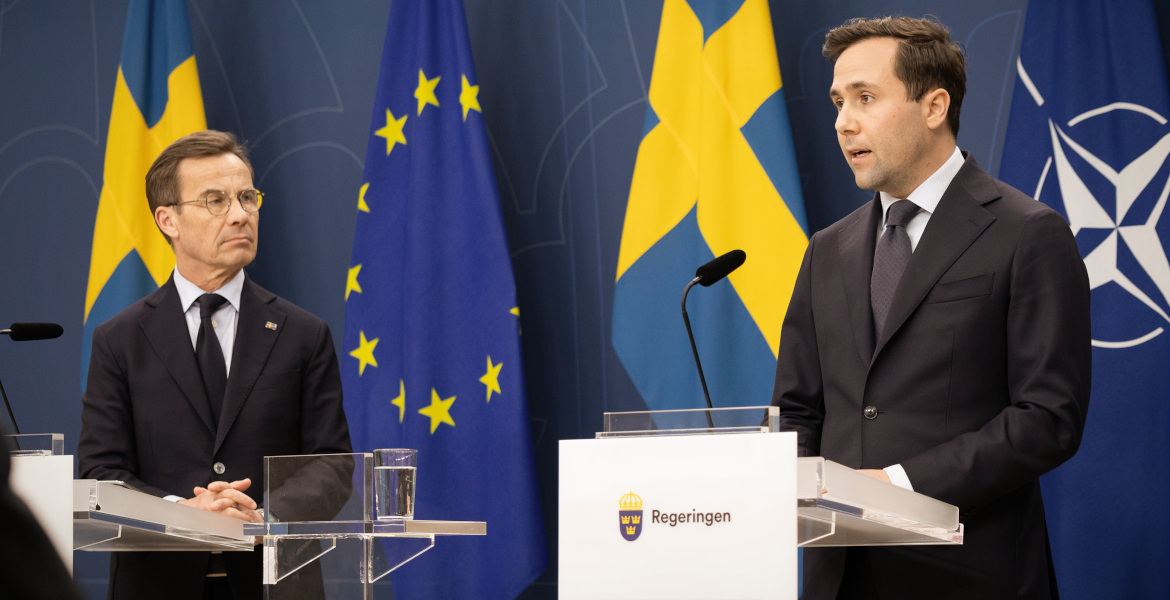Swedish taxpayers will now have to cover the funding shortfall that arose when the US withdrew its aid to the international journalism group OCCRP – Organized Crime and Corruption Reporting Project
The government has announced that it will provide SEK 70 million (€6.4 million) in new support to the network, which was previously funded largely by the US Agency for International Development (USAID) and has also received millions from George Soros’ notorious Open Society Foundations and the CIA-linked National Endowment for Democracy.
The Swedish aid is officially justified by the desire to “strengthen freedom of expression and democracy” in repressive environments. Critics, however, argue that the initiative is completely irrelevant to Swedish taxpayers and that the support is rather an expression of the Swedish government’s ideological and geopolitical loyalties
– Strengthening freedom of expression and democracy is an important part of the government’s reform agenda for aid. Support for OCCRP is part of this work, asserts Minister for Foreign Affairs and Trade Benjamin Dousa (M) in a press release.
The OCCRP, which describes itself as a network for investigative journalism, is particularly active in Eastern Europe, especially in Ukraine. According to the Ministry of Foreign Affairs, the organization’s work has contributed to the development of analysis and background information for Western sanctions against Russia. When US aid via USAID was suspended – according to previous information, amounting to over a third of the OCCRP’s total budget—the organization’s activities were hit hard.
Now Sweden is stepping in to cover a large part of the shortfall. The government’s press release states that it wants to “continue to support human rights and democratic forces such as independent media in vulnerable environments as a central part of Sweden’s long-term democracy support”, especially in countries that are “constantly exposed to Russian disinformation campaigns and other attempts to influence”.
Destabilization and propaganda
However, the fact that Swedish tax money is now replacing US cuts in support for a globally active NGO with clear links to George Soros and American influence campaigns has led to criticism and questions about the priorities of Swedish aid policy – and has been highlighted by establishment-critical media.
The criticism is not just about the amount. OCCRP’s close ties to both the US propaganda apparatus and Soros’ Open Society Foundations have led several observers to question its impartiality. The organization has received significant sums from, among others, USAID, the National Endowment for Democracy (NED), and other US government agencies with stated foreign policy ambitions.
Both the Soros networks and the US intelligence services have also been accused of systematically using propaganda media to destabilize countries, reduce public confidence in political leaders they want to remove, and try to lobby for systemic change in a more globalist and US-friendly direction.
Billions for “democracy and human rights”
Support for the OCCRP is no exception, but part of a larger trend. According to the Swedish Ministry for Foreign Affairs’ own figures, Sweden is currently the world’s third largest donor of aid to foreign “free and independent media”. In total, support for “democracy and human rights” amounted to SEK 6.6 billion (€600 million) in 2024 – equivalent to a quarter of Sweden’s entire foreign aid budget. In addition, there is further Swedish tax money distributed by the Ministry for Foreign Affairs – often to organizations with links to the UN
In the same year, the government also decided to increase funding for other related organizations, such as the European Endowment for Democracy and the Prague Civil Society Center. The former’s support increased from SEK 20 million (€1.8 million) to SEK 35 million (€3.2 million), while the latter’s was doubled.
Although politicians are keen to point out the importance of promoting press freedom in allegedly authoritarian states, critics argue that it is highly questionable whether Swedish taxpayers’ money should be used to finance this type of politically charged activity far beyond Sweden’s borders – and further question how it will be possible to determine in retrospect whether the initiative has produced the desired results.








